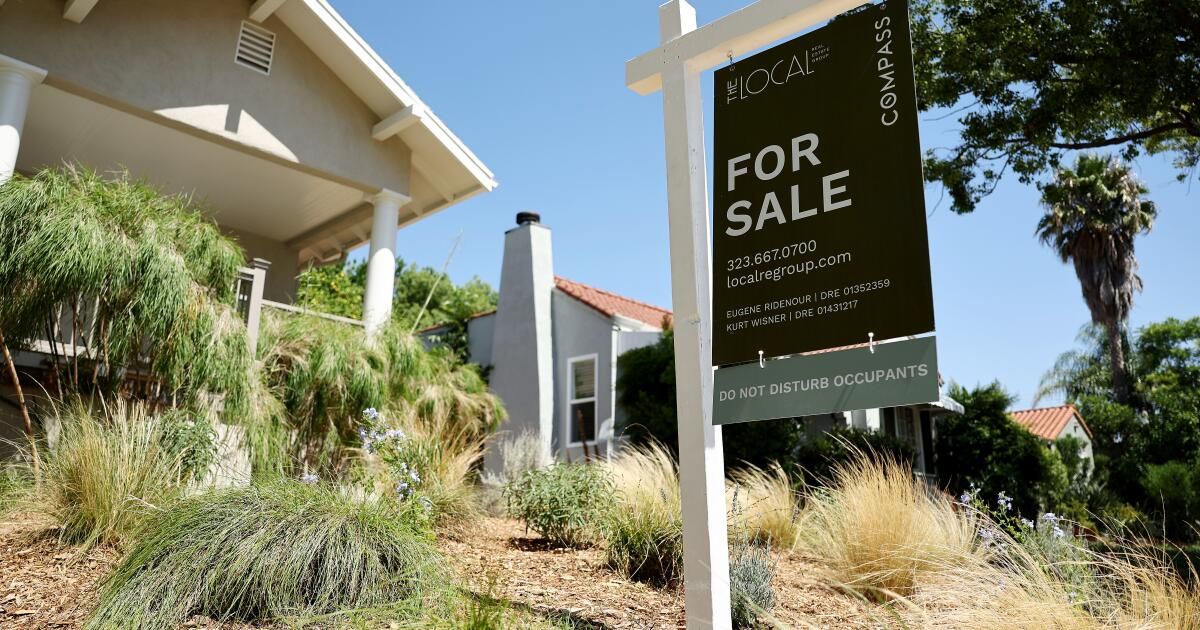A few years ago, I was leaving a friend's housewarming party on a street of nice single-family homes in Los Angeles when my curiosity got the better of me. I opened Zillow on my phone, entered his address, and blinked at the purchase price of the property. I guess I could have asked him. In Los Angeles, it's common to talk about the cost of real estate, and I often hear people compare their refinance interest rates or say how much they had to pay over the asking price. But by searching for information privately, I was able to digest my feelings about not being able to afford a house of equal value because I came from a family of different origins, because I was not married, because our writing careers had developed differently. .
This emotional aspect of homeownership is not discussed in articles that make the choice between buying and renting seem as low-impact as choosing whether or not to eat carbs. Of course, it is a financial investment and, in theory, should be approached without feeling. But it is also one of the most charged principles of the American dream. When a belief or ideal has been instilled in your subconscious, it can be difficult to separate your values and self-identity from the fantasy. This is true even for people like me who grew up outside the mainstream.
When I was a child, my mother and some friends bought 100 acres of land in Maine, creating an intentional community as part of the Back to the agrarian movement in the 1970s. Four families, including mine, designed and built properties (with our own hands), as well as the organic gardens, compost bins, and wood piles that supported the lifestyle we chose. Everything had a purpose, like our house being heated by solar energy and wood that we cut mostly from our land. We ate our homegrown vegetarian meals together under our skylights and at regular neighborhood potlucks. At that moment I felt like a stranger at school. Most of the families in our town had fished for lobster for generations and didn't understand our preferences. But even then, I felt like I was being raised well and thoughtfully.
All of this introduced me to the idea that owning a home was a conscious commitment to creating a small oasis of conscious, environmentally friendly, community-oriented living, as well as an act of stewardship: my parents own 30 acres of forest that our family will never develop. And although I rebelled at age 15 by moving to Massachusetts to start college early, I internalized these values and have been searching for my own version ever since.
Perhaps it was this unusual upbringing that made me always love looking into other people's windows, to see how they lived in comparison. On my walks through my neighborhood I have seen scenes of a child practicing piano or my neighbors watching “Jeopardy” by the light of his Christmas tree. As a child, he drew elaborate underground squirrel houses with bunk beds and skating rinks. As an author, when I'm creating a new character, I go to his hometown's Zillow page and look up his living situation, looking for photos for my scenario. In my upcoming novel, the main character, Mari, is a ghostwriter who gets information about her client by searching for her house on Zillow. But I don't need an excuse to peruse the site. Although I'm not in the market to buy, I love getting lost in the fantasy of other homes, other lives.
This tendency to search for residences in my neighborhood, for sale or not, transformed into searching for houses to which I am invited. Like many things in life, you only have to do it a few times for it to become a habit, whether it feels good or not. When I looked for the new home of a former mentor, the elegant rooms with high ceilings, the attractive patio and the swimming pool gave me all the feelings we can have about an old friend whose career has skyrocketed when ours has not yet caught up. heights.
Maybe I should stop. Or maybe it's a healthy way to understand how I compare to others and evaluate where I am in my own life and what my level of success or acquisition says about me. Perhaps, just as it fuels my writing, it helps me imagine the many possible future stories of my own life.
Finally, in 2017, I gave up my desire to own a home and purchased an investment property in Joshua Tree. Many of my friends also own places there, so in that way I was becoming part of a community that I had sought for a long time. But owning a house that I would live in had become a very powerful meaning, and although I am well aware that being able to buy property anywhere is a luxury that many others will never have, it still felt like a concession. I knew tourists would frequent it more than me.
The day I decided to buy the house, I looked up at the sky through one of the perfectly placed windows and almost cried because the space was that beautiful. The Los Angeles real estate market (and the rental market) had defeated me and I had stopped thinking I had a right to something as nice as this property. Except I did, and I do. We all have this right. And now, sometimes, I open my home's Zillow listing and smile at this little corner of the world where I fulfilled a dream and took the first step toward my own version of management.
Sarah Tomlinson He is a writer in Los Angeles. His first novel, “The Last Days of the Midnight Hikers” will be published on February 13.











